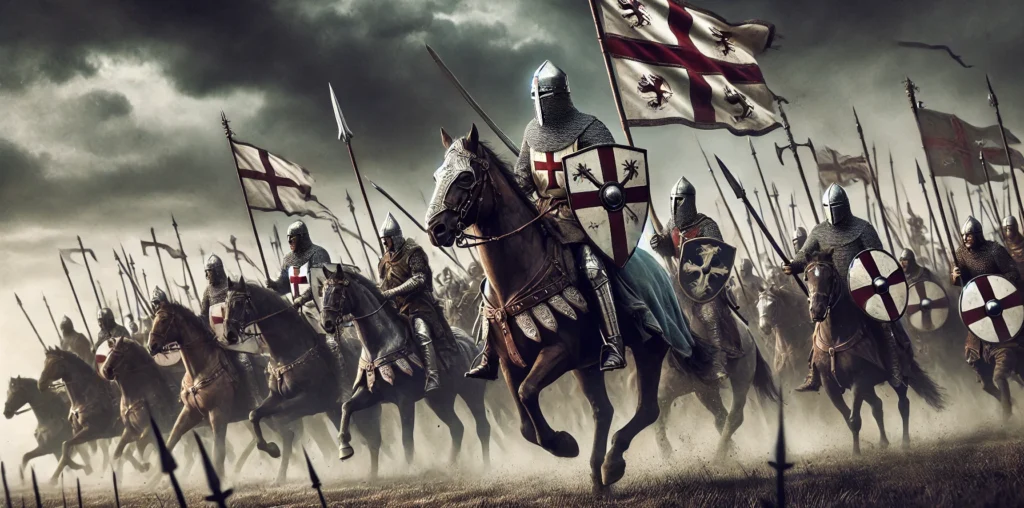Background: The death of Edward the Confessor, King of England, in January 1066 left a power vacuum, as he had no direct heirs. This led to multiple claims to the throne, most notably by Harold Godwinson, who was crowned king, and William, Duke of Normandy, who claimed that Edward had promised him the throne.
What Happened: The Battle of Hastings, which took place on October 14, 1066, was a pivotal conflict between the Norman-French army led by Duke William II of Normandy and the Anglo-Saxon English army led by King Harold Godwinson. The battle followed a dispute over the succession to the English throne after the death of Edward the Confessor in January 1066, who left no direct heir. Harold Godwinson, a powerful English nobleman, was crowned king, but his claim to the throne was contested by William of Normandy, who argued that Edward had promised the crown to him. After months of preparation, William launched an invasion of England, landing his forces on the south coast at Pevensey on September 28, 1066. Harold, who had just repelled another invasion led by Harald Hardrada, the King of Norway, in the north of England, had to force-march his troops to the south to confront William’s advancing forces. The two armies met near the town of Hastings. The battle began early in the morning and lasted all day. Harold’s forces took up a defensive position on a ridge, using their shields to form a wall. William’s forces, consisting of cavalry, infantry, and archers, made repeated attempts to break through the English lines. The Normans used a combination of feigned retreats and direct assaults to lure Harold’s troops off the ridge, gradually weakening their formation. Late in the afternoon, Harold was killed—according to legend, by an arrow through the eye—and his forces were overwhelmed. With Harold’s death, the English resistance collapsed, and William emerged victorious. This victory paved the way for the Norman conquest of England and marked the beginning of Norman rule, which had a profound impact on English culture, law, language, and governance.
Impact for the Future: The Norman conquest brought significant changes to English society, law, and culture. It led to the feudal system’s establishment in England, transformed the English language by incorporating Norman French, and profoundly impacted English architecture, governance, and legal systems. The legacy of the Normans can still be seen in modern England today.

